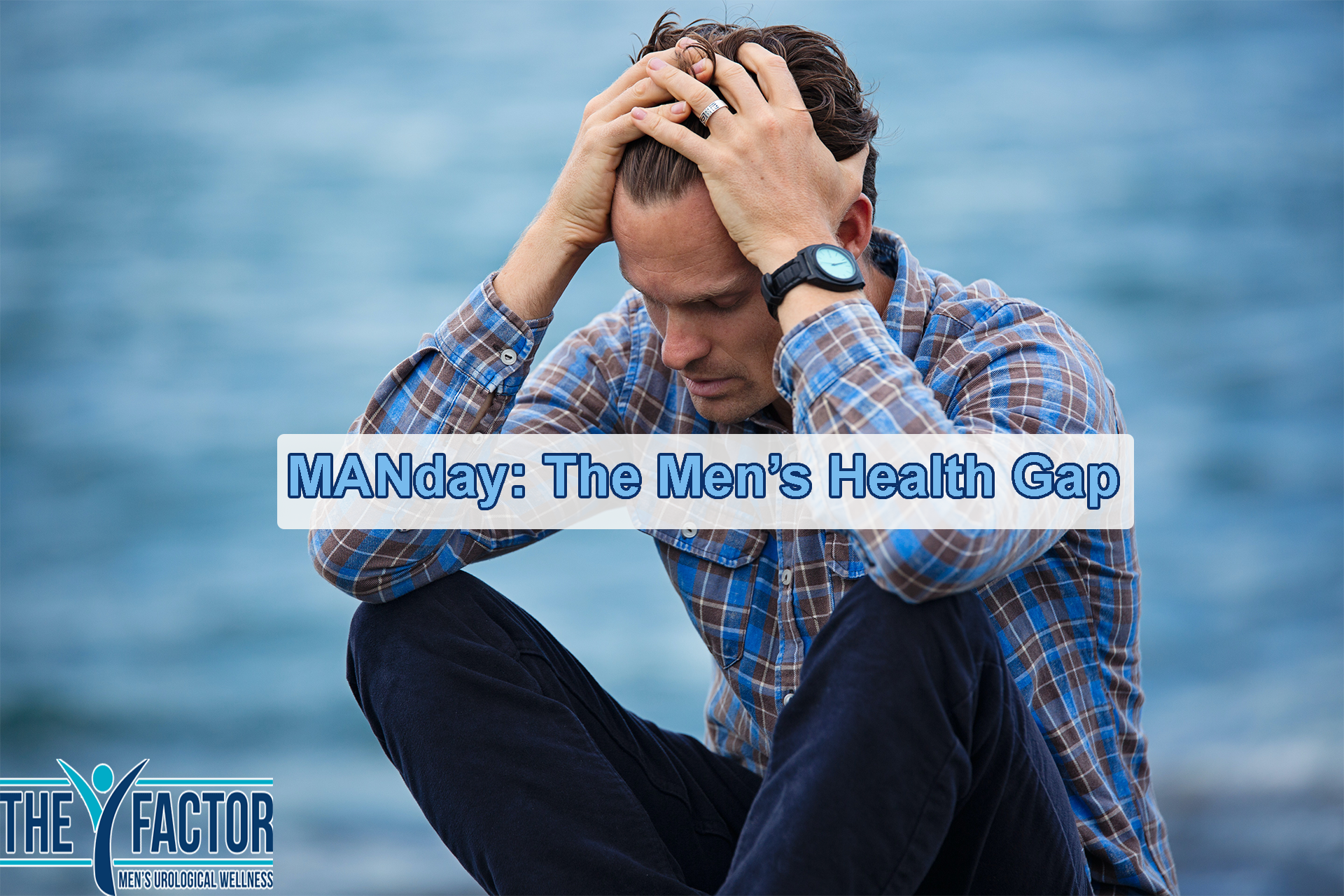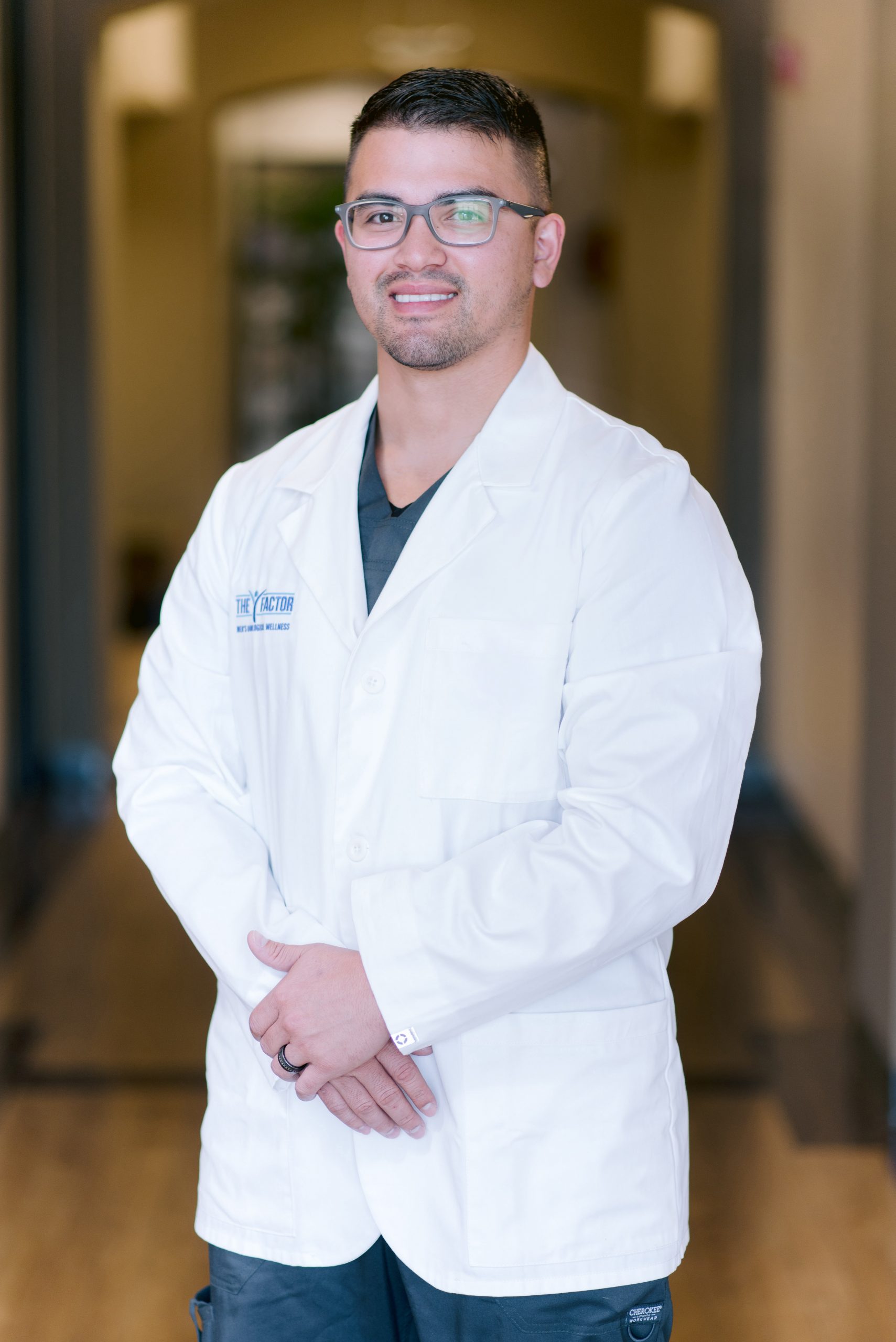MANday: The Men’s Health Gap
There is a huge health disparity between men and women.
According to:
American Journal of lifestyle Medicine,
The World Journal Of Men’s Health,
International Journal of Men’s Health,
The Medical Journal of Australia,
Journal of American college health,
British Journal of Community Nursing,
The American Journal of Men’s health… The list continues.
Men are more likely to die at EARLIER ages than women. Many theories have been proposed as to why this is. From the Y chromosome in our genetic DNA being the culprit, to the way women are able to handle stress better than men. There is no argument that Men’s Health suffers worldwide. If you are reading this, ask yourself how long has it been since you’ve seen a doctor? If it was recent, was it because you were sick or because you were getting your annual exam. If it was for an annual exam, how much of that time was focused on male specific related problems and not just blood pressure and diabetes. Don’t get me wrong, those things are important but male-specific issues are also important. Listen to The World Journal Of Men’s Health:
“Men’s health is now a global public issue, and the importance of men’s health should be recognized and emphasized in most countries of the aging planet”
Men, our health is being neglected and it’s happening early in our lives. Let’s compare and contrast the women vs men at age 20. By age 20 women have already established care with an OB/GYN where they are receiving yearly screening with a specialist in the FEMALE reproductive organ, while a male in his 20s… maybe goes in to see primary care doctor and maybe has the MALE reproductive organs checked. The Journal of American College Health states that,
“For men of college age, the risks of disease, injury, and death are far greater than for women of the same age group, yet college men’s health concerns receive little attention from health professionals.”
Traditionally the responsibility of taking care of the 20 year old man has fallen to the family physician. The family physician is very well trained in many areas but will stop and not claim that they are as adept as the gynecologist to providing wellness in “that area”. The same holds true for young men when it comes to preserving and evaluating their sexual health. Sexual health is important for the young man because of the need to know and preserve his fertility, to recognize and treat sexual problems, and to be screened for testicular cancer. That screening process requires expertise in fertility, genital physical examination, infections, urinalysis and blood work for the young man.
Just as it is with the young female, the young man can now easily be screened for those “comorbid” conditions that begin to emerge like diabetes, and blood pressure problems and cholesterol problems!
The Y Factor is here to screen and intervene early to combat the death and morbidity associated with these diseases. We recognize that successful treatment of this medically neglected patient group requires:
- a) Expertise in their area of medicine.
- b) Easy accessibility for care.
- c) Adoption of advanced technology for communication and education.
“Male-specific issues, such as erectile dysfunction, premature ejaculation, testosterone deficiency syndrome, and prostate and testicular cancer, are often not considered as priorities compared to lifestyle-related health problems, such as smoking, ischemic heart disease, and hypertension. Although they do not contribute directly to the mortality rate, problems specific to men are prevalent and are associated with considerable morbidity and a substantial impact on men’s quality of life. More important, erectile dysfunction is associated with cardiovascular risk factors and predicts cardiovascular-related diseases, such as diabetes, hypertension, hyperlipidemia, and angina. Hence, illnesses that contribute significantly to men’s mortality and adversely affect men’s quality of life should be given due attention.”
Gentlemen, this is The World Journal Of Men’s Health words not mine. The only problem is that you can’t schedule an appointment with The World Journal Of Men’s Health but you CAN schedule an appointment with The Y Factor where we specialized in Men’s Health and Men’s Fertility. We can address these deficits that are due in addition to screen you for those comorbid conditions. Make the call today. Reassert yourself over this area of your life and don’t let your health become another statistic.
1. Moon D. G. (2018). Changing Men’s Health: Leading the Future. The world journal of men’s health, 36(1), 1–3. https://doi.org/10.5534/wjmh.18101
2. Will H. Courtenay PhD, LCSW (1998) College Men’s Health: An Overview and a Call to Action, Journal of American College Health, 46:6, 279-290, DOI: 10.1080/07448489809596004
3. Moon D. G. (2018). Changing Men’s Health: Leading the Future. The world journal of men’s health, 36(1), 1–3. https://doi.org/10.5534/wjmh.18101
Mike Manis is a board-certified nurse practitioner with a master’s of science in nursing.Mike brings 8 years of nursing experience to The Y Factor. He graduated with honors in 2012, cum laude, with a bachelor of science in nursing. He was also inducted into the national honor society and also received the honorary Dean’s Award. He worked in the area of emergency medicine at Houston Methodist, a Magnet Hospital. While there, he pioneered advanced educational nursing programs, received honorary rewards, and became a certified emergency nurse.
In 2020, Mike earned his master’s degree as a family nurse practitioner to advance his career. Mike was also class president of his graduating class of 2020.
Want more information?
Ready to schedule you appointment? Just click on the call us button below to speak directly with our team.


